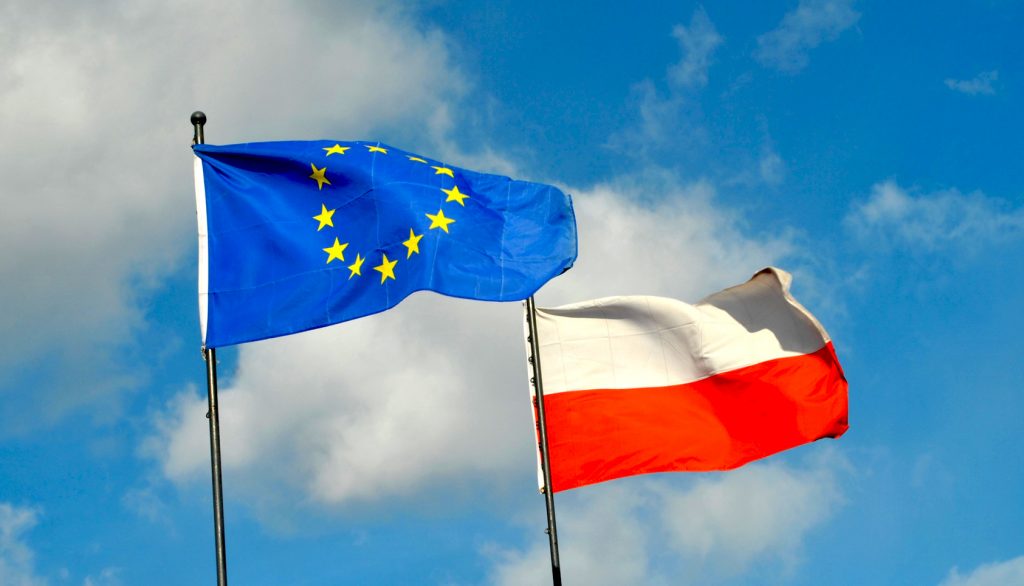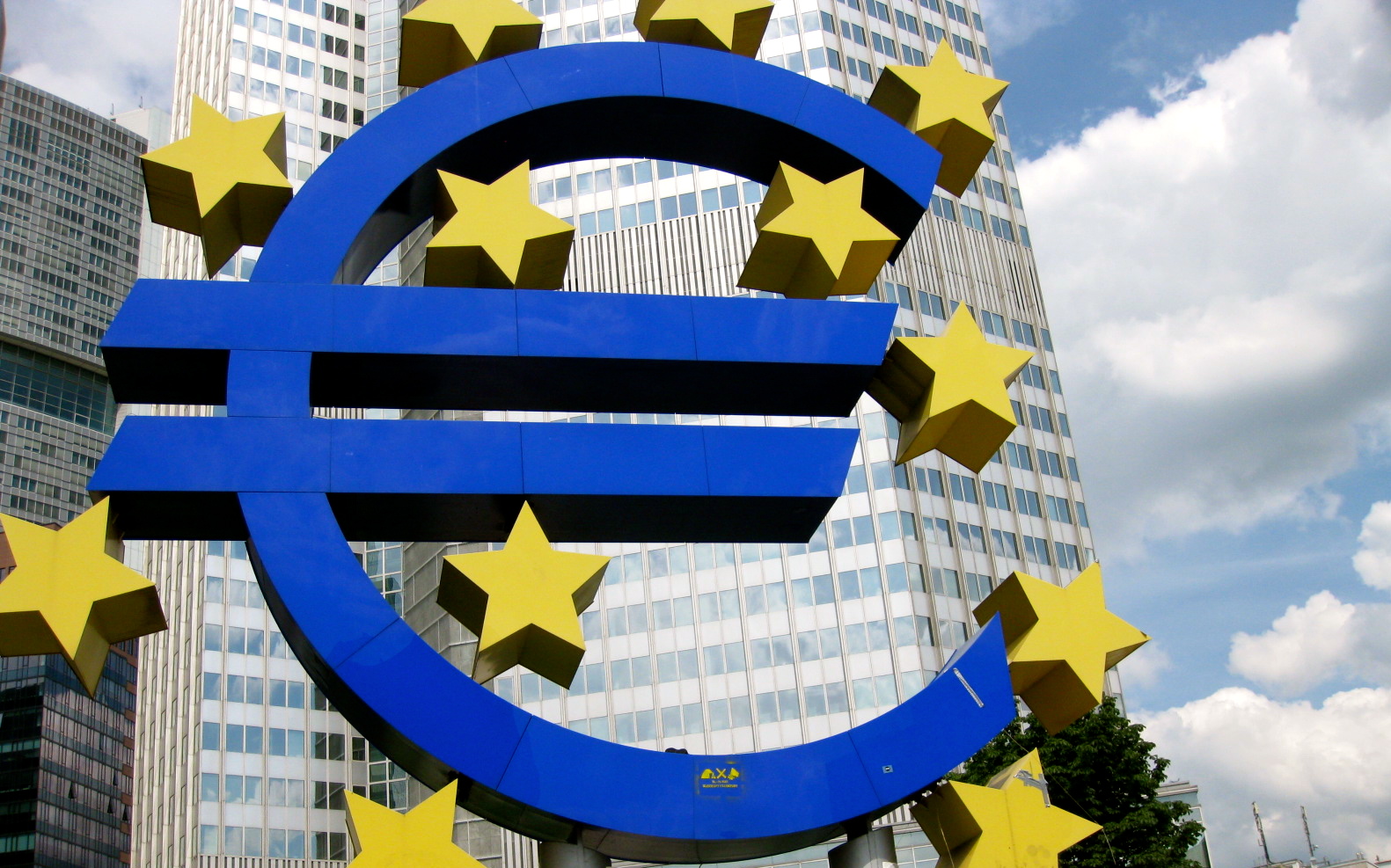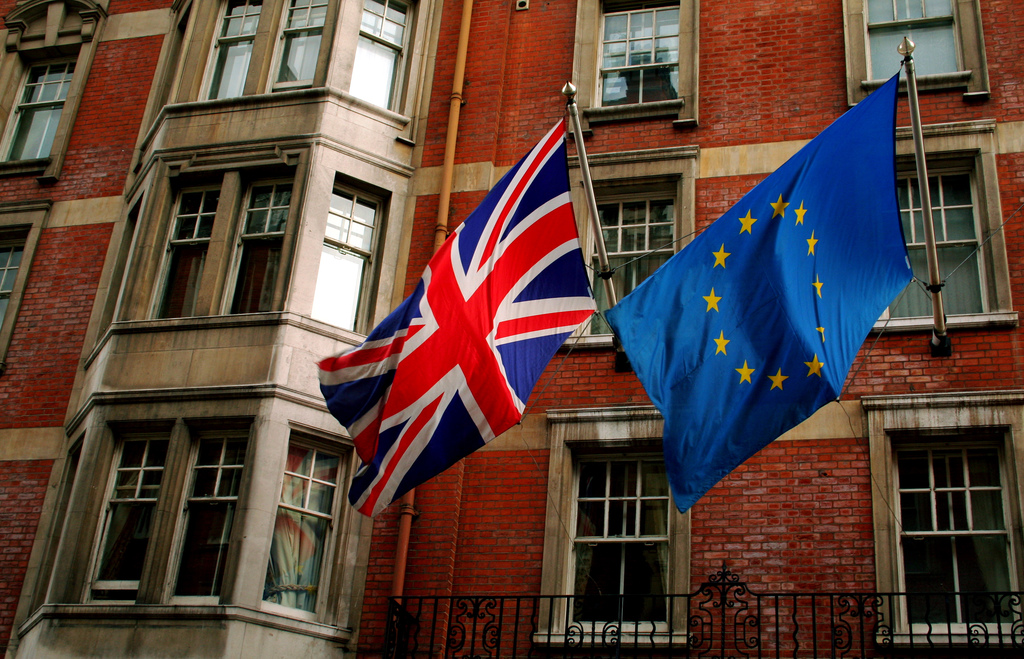SPECIAL REPORTS
Date: 22 May 2019 Author: Tomasz G. Grosse
What’s With the EU? Considerations After 15 Years of Polish Membership
Fifteen years of Poland’s membership in the European Union has opened up an opportunity to discuss the costs and benefits of the country’s presence in the Community and examine the current state of the EU by Polish scholars. Meanwhile, the anniversary gave impetus to confronting two dominant visions of European integration among Polish politicians who, on the one hand, have upheld further progress in integrating subsequent EU policies a phenomenon which translated into shifting competences from state to EU level while, on the other, are committed to sustaining a conservative viewpoint that defends both the subjectivity and competences of national state communities.
However, this does not entail a dispute over whether Poland should leave the European Union or not as all major Polish political parties openly support the country’s further membership. Nonetheless, public discourse has recently put in spotlight alleged accusations that the European policy pursued by Poland’s current government might ultimately drive the nation towards what has been being called a “Polexit.”
The following study aims to evaluate the costs and benefits of the fifteen years of Poland’s membership in the European Union as well as to envisage the potential consequences of a Polexit. The Polish perception of the European Union has been yet to a large extent shaped by the eurozone crisis, Brexit and the migration crisis, all of which have in recent years been noteworthy challenges for the EU. Not only have they contributed to changing the nation’s views on the European Union but they also gave rise to following considerations about a plausible Polexit, which is why they will be discussed in details in the further parts of the paper.

Benefits of Poland’s accession to the EU
Poland’s joining the European Union on May 1, 2004, was almost universally recognized as a nation-wide success. National support for EU integration has until today been ranked as one of the highest among all Member States[1]. Fifteen years ago, Poles said they were most interested in economic factors improving their lives and joining the “first-speed” Europe. Poland has become a beneficiary of the EU cohesion policy that improved the country’s appearance while dramatically raising the level of public infrastructure. Also, net transfers, which came after deducting EU membership fees and whose total sums exceeded hundred billions of euros, bolstered Poland’s local government that surged as a successful result of democratic transition and that later benefited from becoming part of the European Union.
Furthermore, Poland has been allowed substantial funds from Common Agricultural Policy. Although Polish decision-makers and farmers have complained about smaller amounts of direct payments and other subsidies compared to what is received by agricultural workers in the countries of the “Old Europe,” the Polish village has deemed as one of the main victorious entities of European integration, as illustrated by ever-growing Polish food exports. Having accessed the internal market, Poland could freely export its domestic goods, paving its way for attracting investors from Western European countries as well as from outside the Old Continent. The Polish national economy has, therefore, established strong commercial ties with the German one, referred to as the largest in Europe. As a result, both countries have reaped significant benefits, though some scholars have criticized that the Polish economy had either heavily relied on decisions made by Germany-based corporations or become sensitive to the country’s economic condition[2]. Some have, however, argued that the two countries were divided by the development gap, marking a centuries-long tendency of Central Europe towards Western European[3] states.
Other benefits that derived from Poland’s access to the EU internal market were also of particular importance to the Poles themselves who were free to study or work in wealthier EU countries or travel all around Europe, the latter of which was mainly facilitated within the Schengen zone. Attention was also paid to improving Poland’s security as an aftermath of the country’s membership in NATO, the world’s mightiest defense alliance, and the European Union that served to stabilize the geopolitical situation in Europe. For instance, the European Union has helped to mitigate border disputes and all tensions involving national minorities as well as exerted favorable impact on bilateral Polish-German ties.
Problems with cooperation
EU cooperation has encountered a series of difficulties in its market for services as it had never before been subject to full liberalization. These issues have in recent years arisen as an example of growing protectionism from countries whose citizens enjoy higher wages and social welfare standards than their Central European peers. Germany, France, the Benelux, and Nordic countries bear higher labor costs than what has been observed in the central regions of the European Union, a situation that is among other attributed to a stronger position of trade unions. In consequence, workers from Central Europe are seen as more competitive, mostly because the costs of their employment, also in services, are visibly lower than those of their Western European colleagues. This is the reason why the “Old Europe” is committed to defending its jobs and employee privileges for fear of cheaper competition, as exemplified by the EU directive on posted workers, aimed at obstructing an influx of Central and Eastern European labor force delegated to work in the western part of Europe. Earlier, the same issue had come up in the EU Services Directive. Back in 2004 and at the initiative of the EU Commissioner Frits Bolkestein, the European Commission decided to liberalize the European service sector, mainly by removing administrative barriers in Western European countries that remained committed to preventing new European workers from entering their domestic markets. Indeed, further legislative work eventually tightened procedures for Central European service providers who had hoped to become substantial players in Western markets.
Besides, Poland may fight a losing battle in an EU-wide discussion on tax harmonization, understood as a process of adjusting Central European tax systems to Western practices, and a debate on the minimum wage, initiated in a bid to introduce minimum social standards across the European Union. Once implemented, such a legal solution could in the short time contribute to lowering Poland’s competitiveness while generating higher costs for the state budget. This would serve as a potential pressure for a change in the economic model, from the low cost-based competitiveness to the attitude focused on high human capital and advanced technologies. It should be noted that this could be pointed to as an advisable direction of further modifications of Poland’s national economy if one takes into account both growing wages and competition from cheaper workers from outside the European Union, mainly Asia and Africa.
This also incurs the risk of an ambitious EU climate policy; not incidentally, all Polish governments have so far impeded these initiatives for fear of rocketing energy prices and deindustrialization of the country. Although costly in the short term, pressure from EU climate policy could in the long run bring about favorable structural changes in the economy. Poland is not fighting a losing battle, but much depends on both the government’s policy and EU support. Not only should the changes lead to promoting renewable energy, but they could to a larger extent saturate the Polish energy industry and the country’s entire economy with cutting-edge technology as well as foster the development of advanced and highly-paid services. Another advantage of this policy is the potential to diminish Polish and EU dependence on Russian-sourced energy supplies. The challenge is, however, to share the burden of adjustments for EU climate policy between the Member States. This is related to increasing EU support for countries such as Poland that remain heavily dependent on the coal economy.
What is worrisome for Poles?
The severe impact of Poland’s membership in the European Union has been by no means new in the country whose citizens had voiced concerns over the consequences of integration since the accession to the Community. Poland’s fears were initially linked to economic factors, focusing mainly on growing inequalities and social exclusion. As a result, a large part of the country’s political elite either turned down or sought to delay Poland’s entrance into the eurozone’s monetary union. In 2012, liberal politicians, who felt concerned amid further repercussions of the eurozone crisis, assumed a waiting position, seeking the end of economic problems and reforms aimed at securing the zone against the subsequent impasse. In 2019, most of these politicians revised stance on the monetary union and upheld Poland’s membership though no major shifts had been earlier introduced to the format.
For their part, right-wing parties have primarily rejected the country’s entrance into the union, claiming this solution as too risky for both the economy and society. Such standpoint triggers further mistrust towards integration progress, marking a tendency that has yet not always deemed successful in the past. The experience of monetary union stands as the best example in this respect, serving as a flagship project for developing the integration in the Old Continent. Nonetheless, it had proved hardly resistant to the global financial crisis that eventually plunged it in long years of turmoil. The union’s troubles have generated enormous financial costs for some European economies and societies, especially those of Southern Europe. The eurozone crisis has de facto given rise to EU-scepticism across the continent and led to the questioning of the dominant model of integration major EU Member States.
Nevertheless, Poland’s concern over economic effects of integration has been increasingly replaced by long-term economic growth in the country, along with social welfare initiatives whose number has boosted in recent years. Among them is a group of social undertakings carried out by the current governing team, including the “500+” or “Kaczynski five” social programs. Known for his critical stance towards Poland, Frans Timmermans, the first Vice-President of the European Commission, has praised the social policy pursued by Poland’s ruling party Law and Justice[4] (PiS). A Dutch politician has long argued that the European Union was tormented by ever-growing income disparities in Western Europe. Compared to a group of its Western European peers, Poland has for many years been referred to as a “green island,” the only European country not to suffer recession during the financial crisis.
This is why Poland’s EU-sceptic moods are not at all triggered off by economic factors yet being closely linked to concerns expressed by many Poles over universal values and beliefs. Conservative Poles have claimed that Christian and family values, as well as those related to national tradition and culture, may today be at risk. Once emerged in the public debate, the issue of the rights of sexual minorities has aroused major controversy. Much attention was also drawn to the question of national sovereignty and maintaining prerogatives for Poland’s state democracy. This is a matter of sustaining a right-wing vision of European integration that encompasses EU reforms aimed at impeding shifting competences from state to EU level and halting Brussels’s tendency to centralize all powers. Furthermore, the objective is to bolster the authority of the Polish parliament as well as that of domestic voters, pushing right-wing politicians towards stronger prerogatives of national parliaments in EU policy.
Moreover, what deems essential for shaping EU-sceptic attitudes in Poland and across Europe is the experience brought by subsequent EU crises. Like other societies in the EU Member States, Poles have realized that EU integration is not limited to offering benefits. It was a bitter pill for Southern and Western Europe where confidence in the EU generally hit lower results than in Poland, as evidenced by the change in attitude among Italian nationals towards European integration. Back in time, Italy belonged to a group of most Euro-enthusiastic nations though it revised its stance after the eurozone and migration crises. As for Poland’s support for EU integration, it can undoubtedly be referred to as higher, as shown by a study by Eurostat, according to which Poles tend to perceive EU integration a way better than their Western European[5] peers. This seems to have been explained by the fact that Europe’s major crises did not exert any negative impact on Poland. Speaking of the future fate of the European Union, it might be affected by three major problems, among which are Brexit as well as the migration and eurozone crises.
Learning the bitter lesson from the euro
World’s leading economists, along with Paul Krugman[6] and Joseph Stiglitz, both Nobel laureates[7] in economics, branded the eurozone “a faulty project” that lacked mechanisms for balancing macroeconomic imbalances between less competitive countries with a large deficit and richer ones. In consequence, the EU single currency system proves beneficial for the Member States whose economies are seen as most competitive. For example, Germany’s export and budget surpluses hit all-time records even during the recession while solidifying its political influence within the European Union. Meanwhile, the EU monetary union is conducive to accumulating various costs in Europe’s weakest countries, especially in a situation of economic downturn. This may result in deteriorating the pace of economic growth, reducing employment, decreasing wages, and increasing both national debt and current accounts deficits. There is currently no discussion taking place about making attempts to balance the asymmetry in a systemic way, although such solutions have for decades lied at the heart of many economic considerations. Current mechanisms for sharing the burden of these economic adjustments among individual countries have yet provided ineffective both for the EU Member States that noted a surplus and those that registered a current account deficit.
 source: EUOBSERVER.COM
source: EUOBSERVER.COMCrisis management was thus equivalent to shock treatment for all states that were benefited from various assistance programs, making them suspend democratic rules and deepening its reliance on creditors. The monetary union has yet no tools for reducing social costs of the crisis in the countries affected by the recession, such as social transfers or mechanisms for counteracting unemployment, referred to as by economists as automatic stabilizers of the economic situation. Also, neither does it push forward economic growth, nor it allows to reconstruct the country’s competitiveness. The International Monetary Fund’s (IMF) reports found that Greece and Italy will still need several more years to recover from the post-crisis situation and enter the path of their pre-recession economic development[8].
This has entailed a set of political implications; a sustained decline in the pace of economic growth and long-lasting unemployment have both lowered the levels of well-being across people, affecting radical political moods and nurturing EU-sceptic sentiments. Both Greek and Italian governments rebelled against what they called “the dictate of Berlin and Brussels.” The Greek democracy suffered a tremendous shock after the 2015 referendum that overwhelmingly rejected the terms of an economic rescue package offered by EU institutions and IMF. Athens was later forced to ignore the results of the plebiscite and agreed to even harsher austerity measures, a step that ignited negative moods among Greek voters.
While the public opinion had to swallow a bitter pill of EU disappointment after the economic recession, Russia and China were solidifying their economic influence on European soil, also in Greece and Portugal. In 2019, of all G7 countries, Italy was the first to have officially joined China’s new Silk Road project, which raised fears in Berlin, Paris, Brussels while causing uproar also in Washington. Also affected by the negative consequences of the economic recession, Hungary has to the greatest extent developed cooperation with China and Russia in vital economic sectors. Poland’s post-2015 conflict with Brussels and Berlin has cemented bilateral ties with the United States and brought about a more visible economic activity of China; also, Poland is part of the New Silk Road initiative and 16+1 cooperation, both of which engaged sixteen Central European countries under Beijing’s umbrella.
Undesirable immigrants
Another troublesome issue is the migration question, with the crisis that overwhelmed Europe back in 2015. Initially warmly welcomed as a generous gesture towards refugees, Angela Merkel’s decision to open Germany’s borders for migrants was yet later subject to sharp criticism. Due to the increasing social discontent, the federal government gradually began to withdraw from Merkel’s Willkommen Politik in an effort to restrict possibilities of granting asylum to refugees and intensify deportations. Berlin first tried its utmost in the EU arena to distribute the burden of mass migration to Europe among all Member States under an EU relocation mechanism and later attempted to send back all undesirable immigrants to where they had first crossed EU borders. Both undertakings have been slammed by other EU countries whose governments widely feared social discontent.
 SOURCE: WIKIPEDIA.ORG
SOURCE: WIKIPEDIA.ORGSociologists who have made attempts to explain reasons for resistance to accepting migrants in Europe focused predominantly on two factors. First of all, the EU migration crisis coincided with the economic downturn, as a result of which Western Europe no longer needed more workers while the continent suffered from youth unemployment. Also, there has emerged the issue of cultural differences, until then overshadowed by other aspects. A large part of Western Europeans apprehended ever-increasing ethnic, linguistic and religious discrepancies, which ultimately sparked off a sense of security, especially amid elder and less educated voters. Scholars said that another burning issue consisted of difficulties in integrating large masses of immigrants, additionally fostered by[9] the emergence of “parallel communities” that encompassed isolated groups of migrants living on the outskirts of big cities who adopt their cultural patterns while not necessarily assimilating with the local population. As shown in statistics, the unemployment rate tends to be higher among low-income and poorly educated inhabitants of such ethnic enclaves, which is associated with higher crime levels. All the reasons mentioned above were additionally underpinned by the issue of radical Islamic terrorism.
Instead of strengthening the sense of European identity and solidifying the Community focused around the common EU citizenship, the crisis has de facto contributed to weakening the two above aspects. EU institutions have opened up to non-European immigrants and refugees, causing bitterness among EU citizens who had no intention to share their privileges with strangers while expressing hopes to close European borders. In the eyes of many European citizens, the EU has yet again become an object of sharp criticism while EU citizenship remained nothing more than just a technocratic concept that arises little emotions, sociologists said, insisting that the vast majority of Europeans are more attached to their national citizenships that to the EU one[10].
Learning a lesson from Brexit
Alain Finkielkraut, a prominent French intellectual, said that “if Angela Merkel had not let one million migrants into Germany in 2015, there would have been no Brexit[11].” The migration crisis emerged as one of the leading themes before the UK’s EU referendum in 2016 though it referred to a large extent to the mass influx of Central European migrants to the United Kingdom. Nevertheless, Britain’s in-out voting coincided with the migration crisis in the European Union that concerned an uncontrolled wave of non-European populations settling down on British soil.
Furthermore, the migration crisis has sparked a wave of reluctance towards the European Union among members of some other societies, also those that so far had had slightly different experience their Western European peers. For instance, there are now about 1 million Ukrainians, and other Eastern Europeans nationals working in Poland yet Poles are increasingly afraid of non-European immigration. According to a survey conducted last year by state-owned pollster CBOS, 70 percent of people said they are reluctant to accept migrants from the Middle East and Africa. The poll found that 60 percent of Poles are against mass influx of migrants though 56 percent of respondents said they are in favor of admitting refugees fleeing from the war-affected areas of Ukraine[12].
 SOURCE: FLICKR.COM
SOURCE: FLICKR.COMIn addition to the growing migration problem, Britain’s decision to exit from the European Union has been influenced by a set of other factors. For example, Britons feared for the prominent role of the European Commission and the Court of Justice and the UK’s substantial contribution to the EU budget. What Brexit has eventually brought should serve as an impetus to rethink earlier integration tendencies while French President Emmanuel Macron has made efforts to take advantage of UK’s exit from the European Union to centralize all powers in Brussels, expand European technocracy and increase the scope of majority voting to be applied to subsequent EU policies. Though Germany has upheld most of his postulates, Berlin has adopted a far more reserved stance on the issue, mainly fearing additional expenditure and noticing a clear need for strengthening the role of nation-states in integration processes. Germany’s CDU party chief Annegret Kramp-Karrenbauer said a stronger Europe does not need to be tantamount to establishing new institutions or to shifting powers from state to EU level. She made an apparent reference to the EU principle of subsidiarity that narrowed down European competences if national governments might implement them. In her speech, she admitted that it is challenging to reconcile Islam and European values, saying that the European Union cannot be shaped with no participation of European nations, seen as the source for the EU democratic legitimacy[13].
A similar reflection is dominant among EU-sceptic politicians, most of whom did not stand as candidates in EU elections to destroy the European Union or damage the Community. To the contrary, they primarily expected integration process to enter a path of rebuilding the importance of national democracy and the role of EU Member States while at the same time diminishing the powers of both the European Commission and the Court of Justice and closing EU borders to illegal immigration. It is unknown whether future decision-makers will be eager to take all these postulates into account, though.
A possible Polexit?
Strong polarization in Poland’s domestic politics has led to the emergence of two fundamental approaches to further EU integration. The local pro-European camp is in favor of progress in many areas as initiated by French and German politicians while accepting Poland’s membership in the eurozone. For their part, right-wing parties remain much more skeptical about the hitherto fruits of European integration and put forward an idea of returning to European values that had been in force at the beginning the process, arguing the need for restoring the traditional role of Christian norms and the importance of nation states. Moreover, they called for establishing equality between the Member States to be set under an appropriate treaty as it was reportedly disturbed by multiple cases to which intergovernmental institutions applied majority voting.
The Polish opposition has accused the government of the actions purposedly aimed to Poland’s exit from the European Union, as an alleged fruit of the long-lasting dispute over the rule of law in Poland, an issue that is being investigated by EU bodies. The 2018 Polish local elections gave rise for the greatest concerns over a potential Polexit as Poland’s constitution did not conform to judgments from the European Union’s Court of Justice. It is worth noting that the European Union has in recent years witnessed a dispute over whether the principle of supremacy of European law encompasses national constitutions. Many national constitutional courts claim that this rule does not apply; it initially was to be included in the constitutional treaty yet such a provision was eventually withdrawn from the Treaty of Lisbon. It, however, included an attached declaration stating that the supremacy of EU law over national legislation was not explicitly enshrined throughout the text, but it arose from the consistent case-law of the Court of Justice of the European Union[14]. The document thus seems to explain why Poland’s constitutional dispute does not necessarily need to end with the country’s exit from the EU. If this were the case, this threat would affect several EU countries, including Germany as Berlin has admitted that its constitution does not lend itself to the principle of supremacy.
Also, the political context is a crucial factor. There are many reasons why Poland’s ruling Law and Justice party has no intention to leave the European Union as its politicians had repeatedly claimed that such a step would be contrary to Poland’s raison d ‘état. As Polish citizens express high support for European integration, any party that could suggest a Polexit would be exposed to high electoral risk. Also, Poland’s plausible EU exit would trigger off severe economic consequences, depriving the country of EU funds for cohesion and agriculture policies as well as innovations, along with a set of substantial benefits of preferential access to Europe’s internal market. Though after leaving the European Union, Poland would be granted a possibility to negotiate the terms and conditions for accessing the market, it might possibly be obliged to contribute to the EU budget and accept EU regulations and judgments from the Court of Justice of the European Union, at least those referring to the EU’s four freedoms: of movement for goods, services, capital and people.
Even if a Polexit is unlike to happen, Polish opposition parties have introduced the topic to the public debate, making it present in domestic politics and analyzes. It is worth pointing potential consequences of Poland’s leaving the European Union while referring to the UK’s recent experiences. In the aftermath of Brexit, the UK’s economy is to a great extent opening up to cooperation with China, which has raised the ire of Washington. Furthermore, London will probably conclude a trade and investment agreement with the United States and a group of several other countries. The United Kingdom holds an interest in becoming part of the Trans-Pacific Partnership. Speaking of Polexit, economic challenges would be of major importance as Poland’s symbiosis with the German economy would probably be either damaged or completely broken off after Warsaw opted for leaving the EU. This prompts Poland to seek for other economic relations and investment opportunities. The authorities would be obliged to secure the country’s access to both the EU’s internal market and Eastern markets, including those of Russia and China.
As for geopolitical consequences, Polexit would be possibly conducive to severing Polish-German bilateral ties while cementing Poland’s transatlantic relations and those with the United Kingdom. And yet, in the long run, Poland could no longer avoid establishing a more strategic partnership with China or revising its relations with Russia. It seems that the last point will be uneasy to be handled by the current ruling team, which will put aside the probability of Polexit. Warsaw’s divorce with the European Union would most likely impede its efforts to deepen cooperation among Central European states, perceived as an essential direction of the Law and Justice’s policy, that is now primarily being implemented within the EU framework. This is why either Polexit, either “accidental” or “at Poland’s own request,” is unlike to happen in the foreseeable future. However, if disintegration tendencies possibly strengthen within the European Community, such a scenario will be by no means more probable.
Conclusions
Fifteen years of Poland’s membership in the European Union have brought several benefits, both in terms of the country’s economy and its geopolitical stability. The European Union has, however, changed during subsequent countries, with France and Germany to have solidified their impact on the European Community. This has been noticed by Poles, though. More decisions were thus enforced on weaker European partners, both as a result of the majority voting procedure and by exerting political pressure. Stronger states and EU institutions are overwhelmingly interfering in domestic policies of their less powerful peers, especially if the latter are not particularly eager to welcome the anti-recession or EU integration ideas pushed forward by the European integration leaders.
In this context, part of Poland’s public opinion found harmful attacks by Warsaw’s European partners who accused the Polish authorities of violating European values while being overly committed to sustaining national interests. This caused bitter disappointment as the group of Polish right-wing voters upheld the government’s effort to restore original European values, protect national democracy, and observe EU treaties by European institutions. Furthermore, Polish voters felt concerned over the growing impact of French and German interests of the further fate of European affairs.
Despite these experiences, the majority of Polish society along with the country’s most powerful political forces have no intention to withdraw from the European Union, yet the topic of a Polexit has emerged for the first time since Poland joined the Community. Poland’s potential leaving the European Union was to be primarily linked to the domestic electoral struggle taking place in the country though with no significant repercussions for the government’s European policy. Poles were first and foremost seeking to come up with some solutions to improve the functioning of the European Union in a bid to prevent the Community from falling apart due to its problems. This prompted them to engage in a debate on the future of the European Union and ways to tackle its most burning issues.
The anniversary of Poland’s EU membership has laid the groundwork for a lively discussion on the country’s place in Europe. Poland’s largest political factions – despite intense internal polarization –represent convergent views on national interests in the EU internal market as well as those referring to cohesion and agricultural policies. They agree for the progress in the EU’s defense policy yet while keeping the transatlantic ties and highlighting NATO’s leading role in safeguarding European security. Among disputable matters are Poland’s presence in the eurozone, its stance on the migration policy and the scope to which is restricted subjectivity (or autonomy) of EU Member States, all of which are seen as sensitive topics for the future of the European Union that directly stem from its recent crises.
[1] European citizenship, Standard Eurobarometer 89, Spring 2018, European Commission, p. 12.
[2] Cf. A. Nölke, A. Vliegenthart, Enlarging the Varieties of Capitalism The Emergence of Dependent Market Economies in East Central Europe, World Politics, 2009, 61 (4), pp. 670-702.
[3] R.A. Epstein, Overcoming’ Economic Backwardness’ in the European Union, Journal of Common Market Studies, 2014, 52 (1), pp. 17-34.
[4] Frans Timmermans chwali PiS za politykę socjalną [Frans Timmermans praises Poland’s Law and Justice party for its social policy], March 19, 2019, wnp.pl, https://www.wnp.pl/parlamentarny/swiat/frans-timmermans-chwali-pis-za-polityke-socjalna,38091.html [accessed: March 27, 2019].
[5] Eurobarometer Survey 89.2 of the European Parliament. A Public Opinion Monitoring Study, European Parliament, June 2018, pp. 51-52.
[6] P. Krugman, What’s the Matter With Europe? The New York Times, May 21, 2018, https://www.nytimes.com/2018/05/21/opinion/europe-euro-democracy-wrong.html [accessed: March 29, 2019].
[7] J.E. Stiglitz, The Euro: How a Common Currency Threatens the Future of Europe, W. W. Norton & Company, New York 2016.
[8] Greece, Staff Report for the 2016 Article IV Consultation, op. cit.; Italy. Staff Report for the 2017 Article IV, International Monetary Fund, July 2017.
[9] Cf. R. Eatwell, M. Goodwin, National Populism. The Revolt Against Liberal Democracy, Penguin Books, London 2018.
[10] H. Ballin, Citizens’ Rights and the Right to Be a Citizen, Brill, Leiden 2014.
[11] M. Karnitschnig, Merkel’s go-it-alone legacy. German chancellor’s unexpectedly soaring oratory can’t make up for years of failed foreign policy, Politico, February 21, 2019, https://www.politico.eu/article/angela-merkel-legacy-go-it-alone-germany/ [accessed: February 27, 2019].
[12] Stosunek Polaków i Czechów do przyjmowania uchodźców [Poles and Czechs’ attitude to receiving refugees], CBOS, 87 (2018), July 2018.
[13] A. Kramp-Karrenbauer, Europa jetzt richtig machen, Welt am Sonntag, 10.03.2019, https://www.welt.de/politik/deutschland/article190037115/AKK-antwortet-Macron-Europa-richtig-machen.html [accessed: March 27, 2019].
[14] Declaration No 17 referring to priority, Treaty of Lisbon amending the Treaty on European Union and the Treaty establishing the European Community, signed at Lisbon, December 13, 2007, OJ C 306, December 17, 2007
The publication of the Special Report was co-financed from the funds of the Civic Initiatives Fund Program 2018.
The concept of analytical material was created thanks to co-financing from the Civil Society Organisations Development Programme 2019.
Selected activities of our institution are supported in cooperation with The National Freedom Institute – Centre for Civil Society Development.
All texts published by the Warsaw Institute Foundation may be disseminated on the condition that their origin is credited. Images may not be used without permission.

















